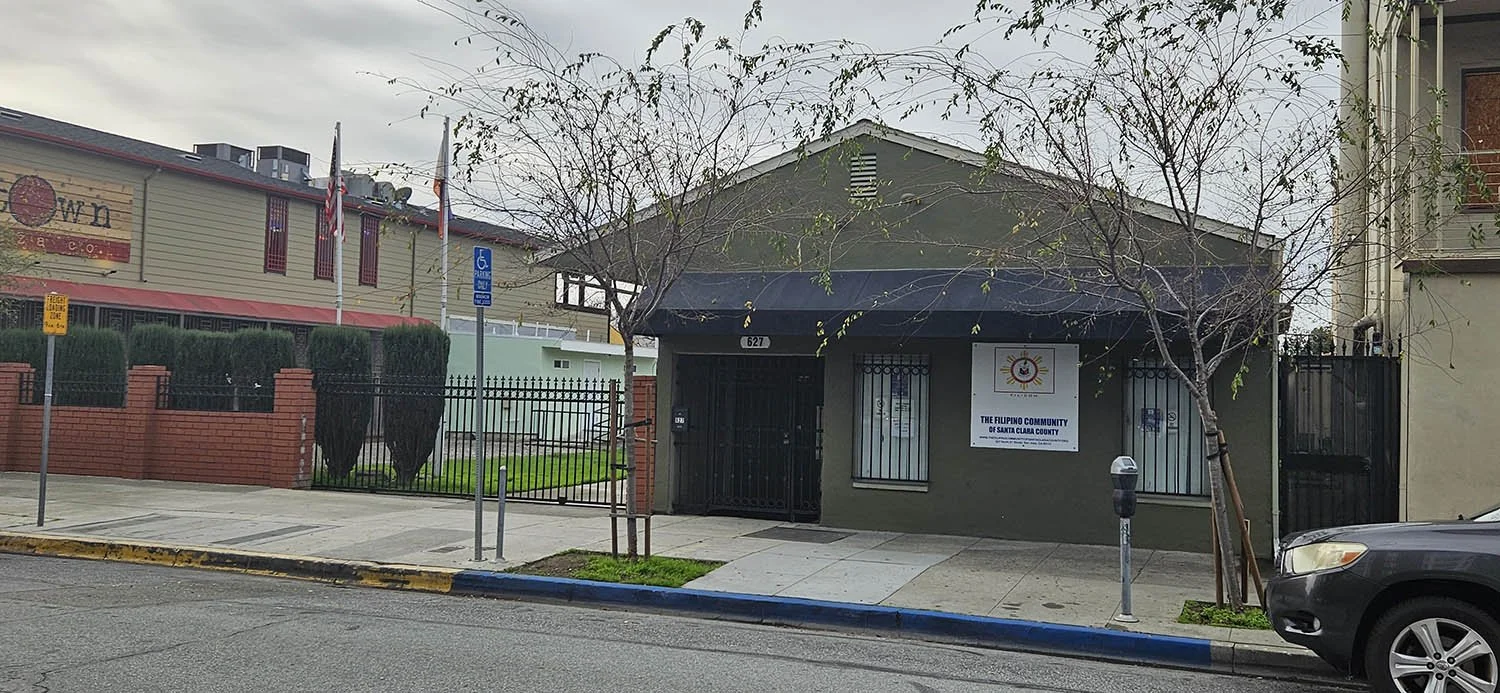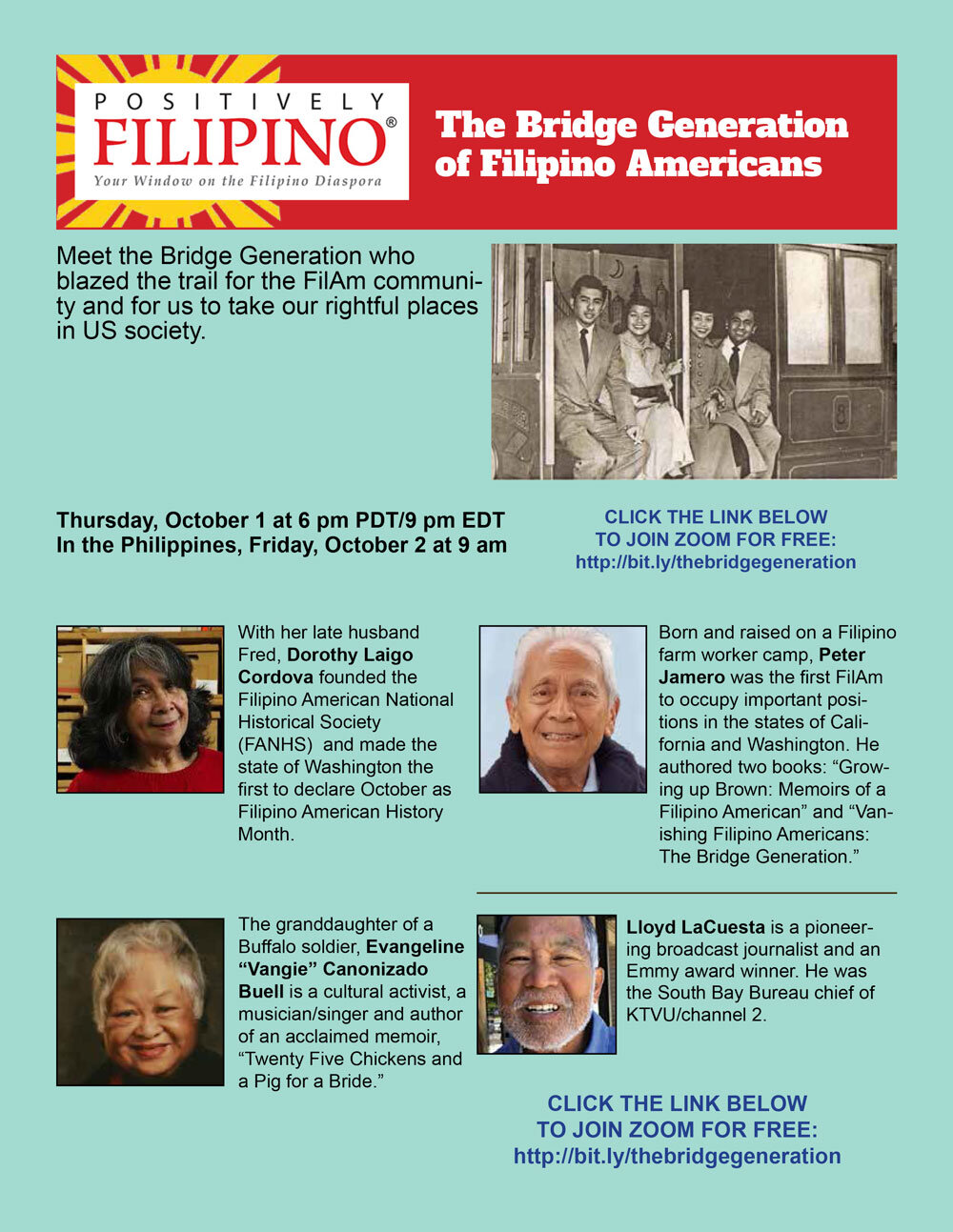Bridge Generation
/Many stories have been written, narrated, and documented about the "manongs," the first-generation Filipino migrants in the US who were recruited from the Philippines to work the farmlands of Hawaii and California. Not much have been written, however, of the "bridge generation," the children of the manongs/manangs who, because of legal and societal issues (including the law that prohibited minorities from marrying whites), are comparatively small in number but who nonetheless occupy a significant and consequential niche in Filipino American history.
This year, we are starting our celebration of Filipino American History Month tomorrow with a webinar that will feature three prominent members of the Bridge Generation taking us back in time on how it was to grow up in the era before civil rights, diversity and a new generation of Filipino immigrants.
We hope you join us in honoring these Fil-Am community trailblazers.
This Week’s Stories
A Poet Laureate Who Must Now Voice Sic Semper Tyrannis By Agatha Verdadero
Fil-Ams Among The Remarkable And Famous, Part 9 By Mona Lisa Yuchengco
GAD And COVID By Rene Astudillo
[Partner] Visas Available For Filipino Registered Nurses, Physical Therapists & Other Healthcare Workers (Including Caregivers) By Lourdes Santos Tancinco
[Read Again] The Happy Home Cook: Vegan Longganisa By Chef Richgail Enriquez
Video of the Week: 100 Miles Apart, a video about two Filipino healthcare workers directed by Garveaux Sibulboro for A-Doc.
In The Know
How Covid has affected Asian American multigenerational homes
https://news.yahoo.com/covid-impacted-asian-american-multigenerational-100020665.html?soc_src=social-sh&soc_trk=ma
Family Ordeal Catapults A Young Filipina To The U.S. — And The Pandemic Front Lines
https://www.npr.org/sections/goatsandsoda/2020/09/24/916018250/family-ordeal-catapults-a-young-filipina-to-the-u-s-and-the-pandemic-front-lines?fbclid=IwAR2_7eK3dm8FZ6b6wHfDhz1_7_1cewyr_xICUzUkW7LkAQv0IT026LQSd60
The men behind QAnon
https://abcnews.go.com/Politics/men-qanon/story?id=73046374&fbclid=IwAR3UKqi9ZC8ofC0UCFgTOEH2cLruPz0ohCkcMJ7W1upBOZpjk4Gejx4CqI0
Long-time Fil-Am Republican: ‘Why I reject Trump’
https://usa.inquirer.net/57091/long-time-fil-am-republican-why-i-reject-trump?fbclid=IwAR02J2dz820bVjoJnVnyD80lRT8wRXnZFrkF0_HS85u9HM_eJd2EQ8sm3Sc
When Ferdinand Marcos hid his illness from Filipinos
https://www.rappler.com/newsbreak/in-depth/ferdinand-marcos-hidden-illness-philippines?fbclid=IwAR3prIdpMLiP5eXkvTol7YHNJe-QaupXvl5kgCqgGjntvqyGtbUTADFg5yI



